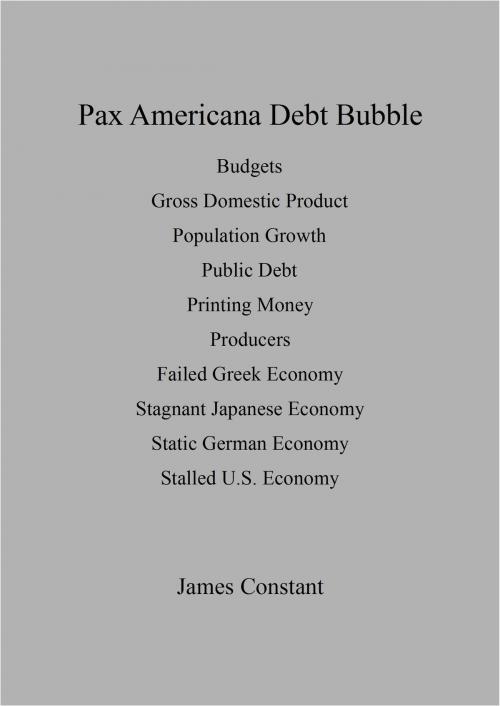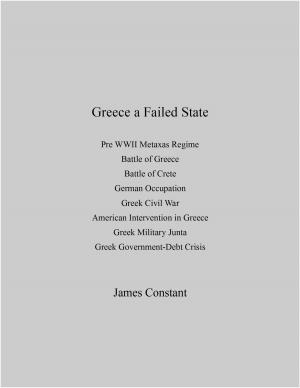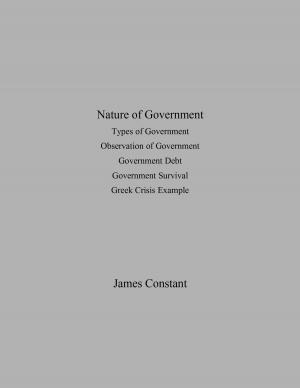| Author: | James Constant | ISBN: | 9781310846236 |
| Publisher: | James Constant | Publication: | October 10, 2015 |
| Imprint: | Smashwords Edition | Language: | English |
| Author: | James Constant |
| ISBN: | 9781310846236 |
| Publisher: | James Constant |
| Publication: | October 10, 2015 |
| Imprint: | Smashwords Edition |
| Language: | English |
The western economic powers comprising Pax Americana, such as the United States (U.S.), Germany and Japan, appear to be in a decline phase while the emerging eastern powers such as Russia, China, India and Brazil appear ascendant. The economy of Japan peaked in 1990 after its inflated bubble burst and it has not completely recovered. Starting with the Lehman Brothers bank collapse, the U.S. economy declined markedly in 2007-08, after its sub prime mortgage crisis bubble burst. It had tremendous negative economic impacts on other countries and regions, and it eventually caused the global financial crisis. The European Union (E.U.), having been seriously damaged by the world financial crisis, experienced its own fiscal crisis with the Greek default and its economy has no way to achieve high growth in the next decade or so. While the continued economic problems faced by the U.S. and Japan are similar, the difficulties faced by the E. U. are somewhat different since the causes are mostly due to the effects of economic integration between most countries that are economically weak and some that have strong economies. However, the situation in the E.U. is not irrelevant to the U.S. and Japan both of which have fiscal deficits much larger than that of the E.U. countries where, beginning with the debt loaded Greek economy, the debt crisis presented risk of disbanding the union. Germany, the strong powerhouse alone has kept the E.U. alive.
Here, I look at Greece’s failed, Japan’s stagnant, Germany’s static, and the U.S. stalled economies. Greece’s and Japan's experiences are relevant to both the U.S. and the E.U. Presently, Greece has been pushed into long term economic bondage to its European partners, and both Japan and the U.S. have suffered from low growth for a long time. I start by presenting budgets, gross domestic product, population growth, public debt, printing money and producers in each country over the past few years. I find that the U.S. alone, at risk of collapse or becoming an eclipsed empire like Britain, has kept Pax Americana alive at great cost.
The Lehman Brothers bank and Greek default were significant events because they threatened the immediate collapse of the U.S. and E.U. economic systems.
The western economic powers comprising Pax Americana, such as the United States (U.S.), Germany and Japan, appear to be in a decline phase while the emerging eastern powers such as Russia, China, India and Brazil appear ascendant. The economy of Japan peaked in 1990 after its inflated bubble burst and it has not completely recovered. Starting with the Lehman Brothers bank collapse, the U.S. economy declined markedly in 2007-08, after its sub prime mortgage crisis bubble burst. It had tremendous negative economic impacts on other countries and regions, and it eventually caused the global financial crisis. The European Union (E.U.), having been seriously damaged by the world financial crisis, experienced its own fiscal crisis with the Greek default and its economy has no way to achieve high growth in the next decade or so. While the continued economic problems faced by the U.S. and Japan are similar, the difficulties faced by the E. U. are somewhat different since the causes are mostly due to the effects of economic integration between most countries that are economically weak and some that have strong economies. However, the situation in the E.U. is not irrelevant to the U.S. and Japan both of which have fiscal deficits much larger than that of the E.U. countries where, beginning with the debt loaded Greek economy, the debt crisis presented risk of disbanding the union. Germany, the strong powerhouse alone has kept the E.U. alive.
Here, I look at Greece’s failed, Japan’s stagnant, Germany’s static, and the U.S. stalled economies. Greece’s and Japan's experiences are relevant to both the U.S. and the E.U. Presently, Greece has been pushed into long term economic bondage to its European partners, and both Japan and the U.S. have suffered from low growth for a long time. I start by presenting budgets, gross domestic product, population growth, public debt, printing money and producers in each country over the past few years. I find that the U.S. alone, at risk of collapse or becoming an eclipsed empire like Britain, has kept Pax Americana alive at great cost.
The Lehman Brothers bank and Greek default were significant events because they threatened the immediate collapse of the U.S. and E.U. economic systems.















